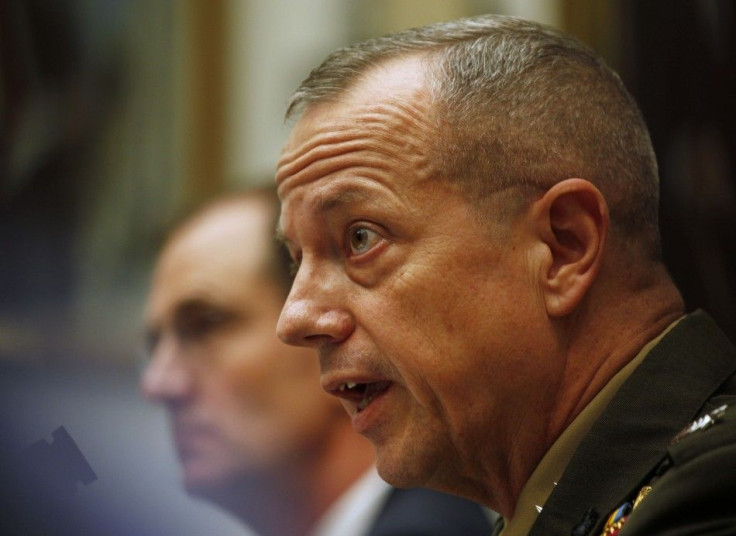Afghanistan Troops: 'Significant Combat Power' Still Needed, Top General Says

The United States should keep a substantial number of troops in Afghanistan despite intensifying doubts about America's mission there, Marine Gen. John Allen told the U.S. Senate Armed Services Committee on Thursday.
The testimony from Allen, the top American military official in Afghanistan, emphasized the need for a robust military presence in Afghanistan even as the American public grows increasingly weary of a war that has spanned more than a decade.
My opinion is that we will need significant combat power in 2013, Allen said.
President Barack Obama committed an additional 23,000 surge troops to Afghanistan early in his presidency, citing the need to stabilize the country and beat back a resurgent Taliban, and last summer he detailed a plan to withdraw those extra troops by the end of September. Allen said the remaining 68,000 troops would be a good going-in number, but added that I owe the president some analysis on that.
When pressed, Allen said that he would not make an explicit recommondation about a timetable for full withdrawal until the end of the year, which would likely mean after the 2012 presidential election.
I think it's exactly the best way ultimately to identify the state of the insurgency, the state of the full [International Secuiry Assistance] force, to include the U.S. force, but also to evaluate the operational requirements for '13 in order to make a comprehensive recommendation, Allen told the committee.
Incidents In Afghanistan Ignite Widespread Anger
American troops have ignited widespread anger and animosity in recent weeks, first by burning Qurans and other holy texts and then when a rogue soldier embarked on a killing spree that left 16 Afghan civilians dead. President Hamid Karzai said the slaughter cannot be forgiven, and the murders seemed likely to imperil tenative efforts at political reconciliation talks with the Taliban.
The Quran burnings set off angry riots that crystallized public frustration with the U.S. occupation. Afghan soldiers turned their weapons on Americans they worked with, raising concerns about the state of the Afghan security forces. At the hearing, Allen discussed potentially reducing the target size of the Afghan security forces from 352,000 to 240,000.
There are a number of different options, and we're continuing to evaluate what those options might be, all the way from the current force, the 352,000 force, which will continue to exist for several years once we have fielded it, down to a force that was smaller than 230,000, which probably doesn't have the right capabilities, the right combination of capabilities, Allen said.
A poll conducted immediately before the killings and the Quran burnings found the American public growing increasingly disillusioned about the Afghanistan mission, with a majority of Americans saying the war has not been worth fighting.
--
© Copyright IBTimes 2024. All rights reserved.





















